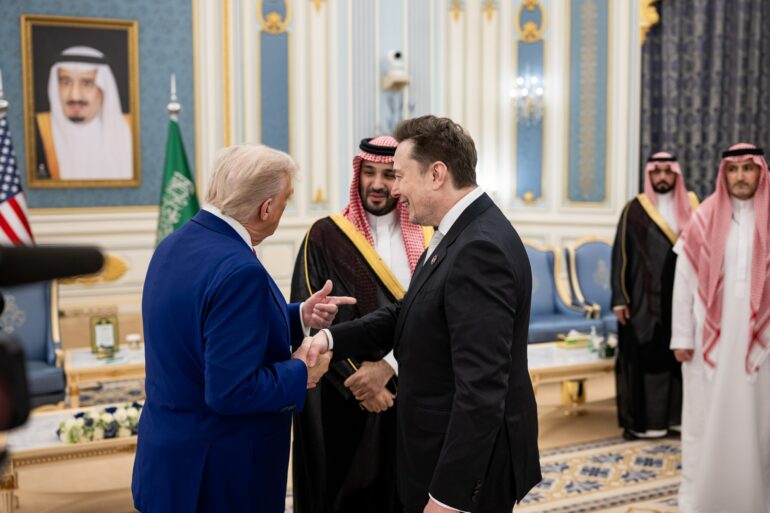A sharp rupture between President Donald Trump and tech magnate Elon Musk reportedly escalated on Tuesday as Trump threatened to examine the possibility of deporting Musk and deploy a federal agency he once helped lead—the Department of Government Efficiency (DOGE)—to scrutinize the billionaire’s enterprises.
Trump, speaking to reporters on the White House lawn, conveyed that Musk “gets a lot of subsidies” and hinted that without them, Tesla and SpaceX “would probably have to close up shop and head back home to South Africa.”
He added provocatively: “We might have to put DOGE on Elon. DOGE is the monster that might have to go back and eat Elon. Wouldn’t that be terrible?” When asked directly whether he would consider revoking Musk’s citizenship, Trump answered: “I don’t know, we’ll have to take a look.”
The confrontation centers on Musk’s public denunciation of Trump’s “One Big Beautiful Bill,” a sweeping legislative package combining tax cuts with substantial spending reductions, including the rollback of electric vehicle incentives.
Musk has argued that the bill would spur catastrophic deficits and damage innovation, especially in clean-energy sectors. Trump, in response, accused Musk of resisting the bill only because it eliminates favorable subsidies for Tesla.
Musk retorted on social media with defiant language, warning that he would allocate campaign support to primary challengers of lawmakers who back the legislation and float plans for a new political party he dubbed the “America Party” or “Porky Pig Party.”
But he signaled restraint, noting that while it was “so tempting to escalate” the feud, he would hold off—at least for now.
The drama underscores a dramatic devolving of relations between two figures once viewed as political allies. Musk had briefly led the DOGE initiative, a Trump-era agency tasked with reducing federal waste and regulation.
That partnership began unraveling earlier this month when Musk criticized the Republican-backed bill—prompting Trump to retaliate.
Lawmakers and analysts warn the clash may have broader implications. Musk’s threat to primary lawmakers could influence tight Senate and House races, while Trump’s threat to reassign subsidies or contracts raises political and legal questions.
Critics say the deportation threat may be largely theatrical, but still underscore rising tensions over the boundaries of federal power, immigration and economic influence.
The standoff also amplifies enduring questions about government subsidies and regulatory oversight. Musk’s companies have benefited from decades of federal investment—support that Trump now positions as a point of leverage.
Whether Trump’s remarks mark a real policy threat or mere political posturing remains unclear, but the public confrontation signals a fracture between two of the most influential figures in technology and conservative politics.
[READ MORE: Supreme Court to Hear Landmark Republican Challenge to Election Law]



